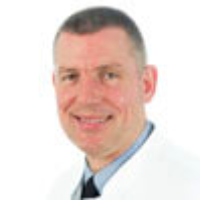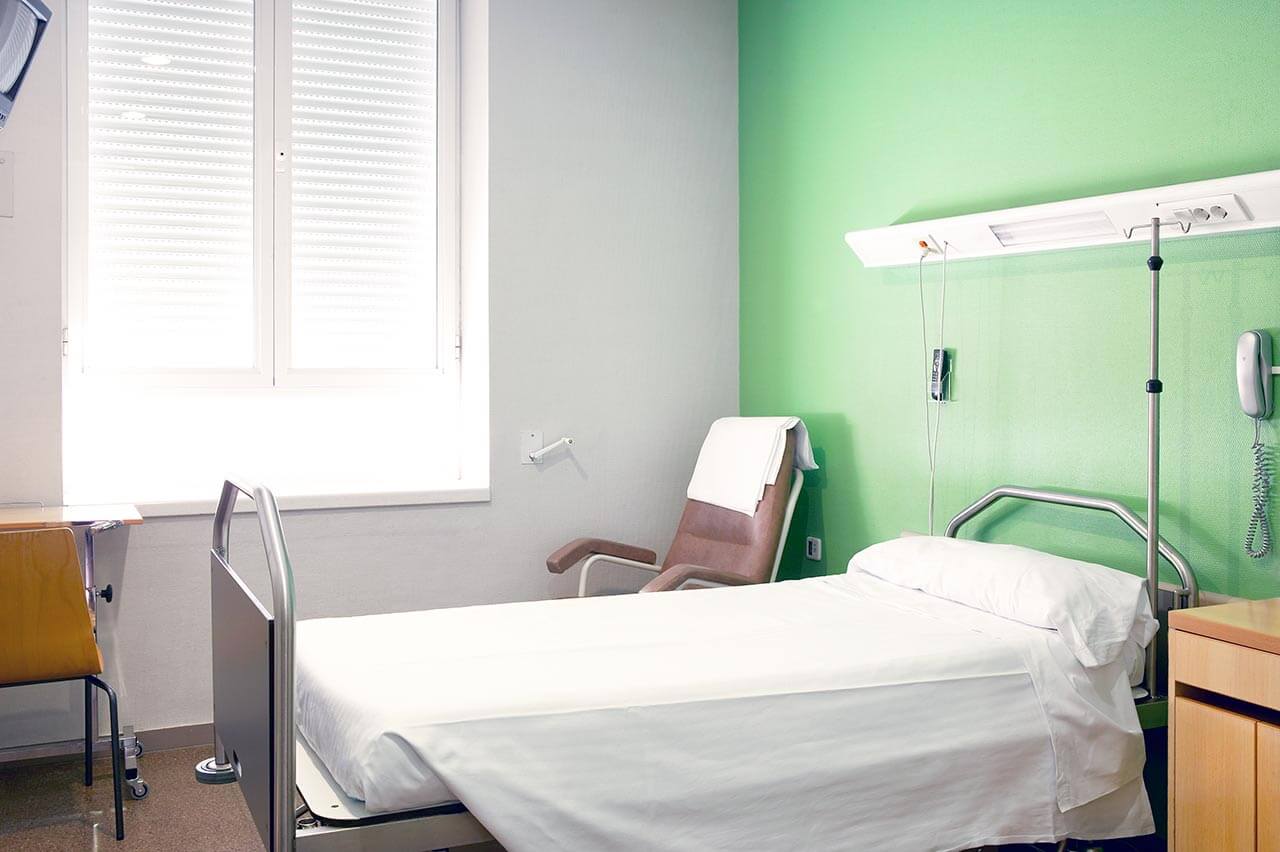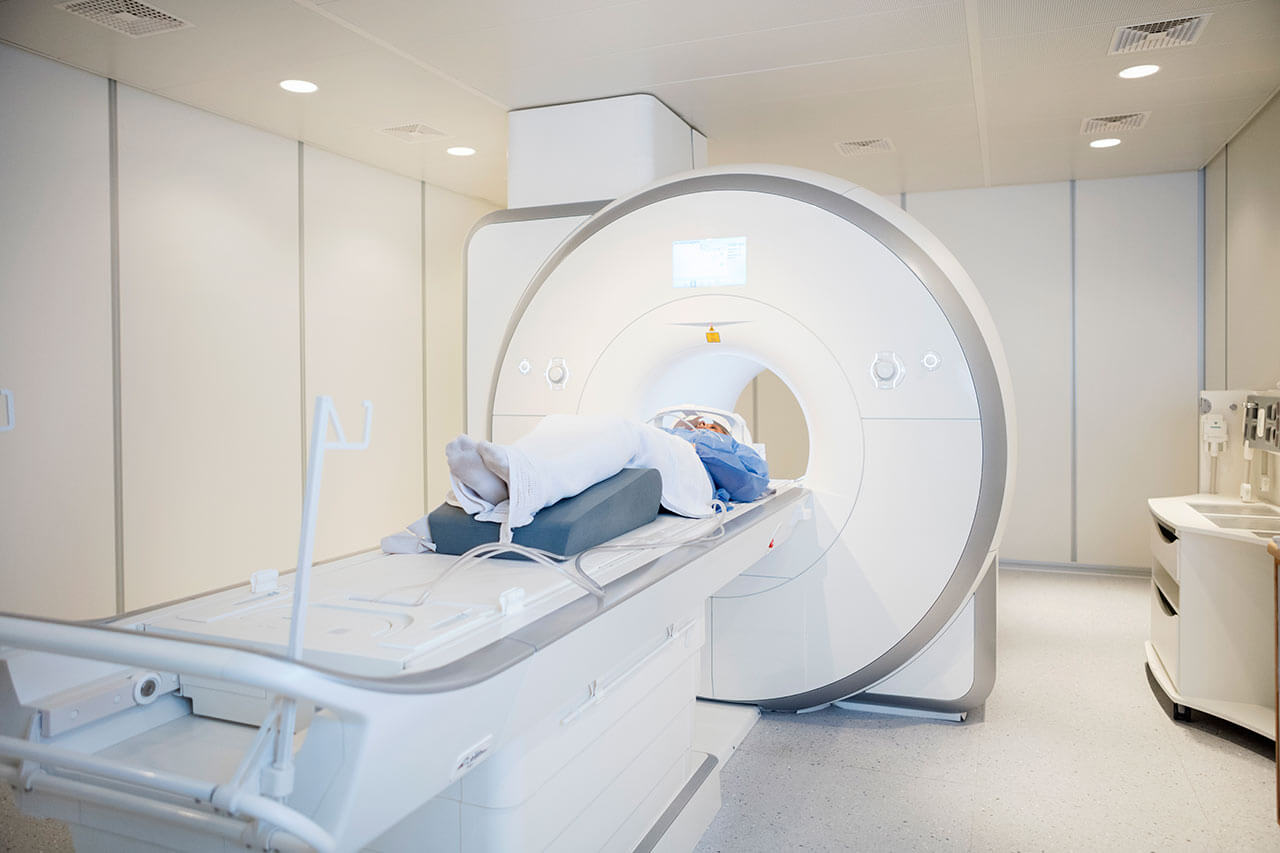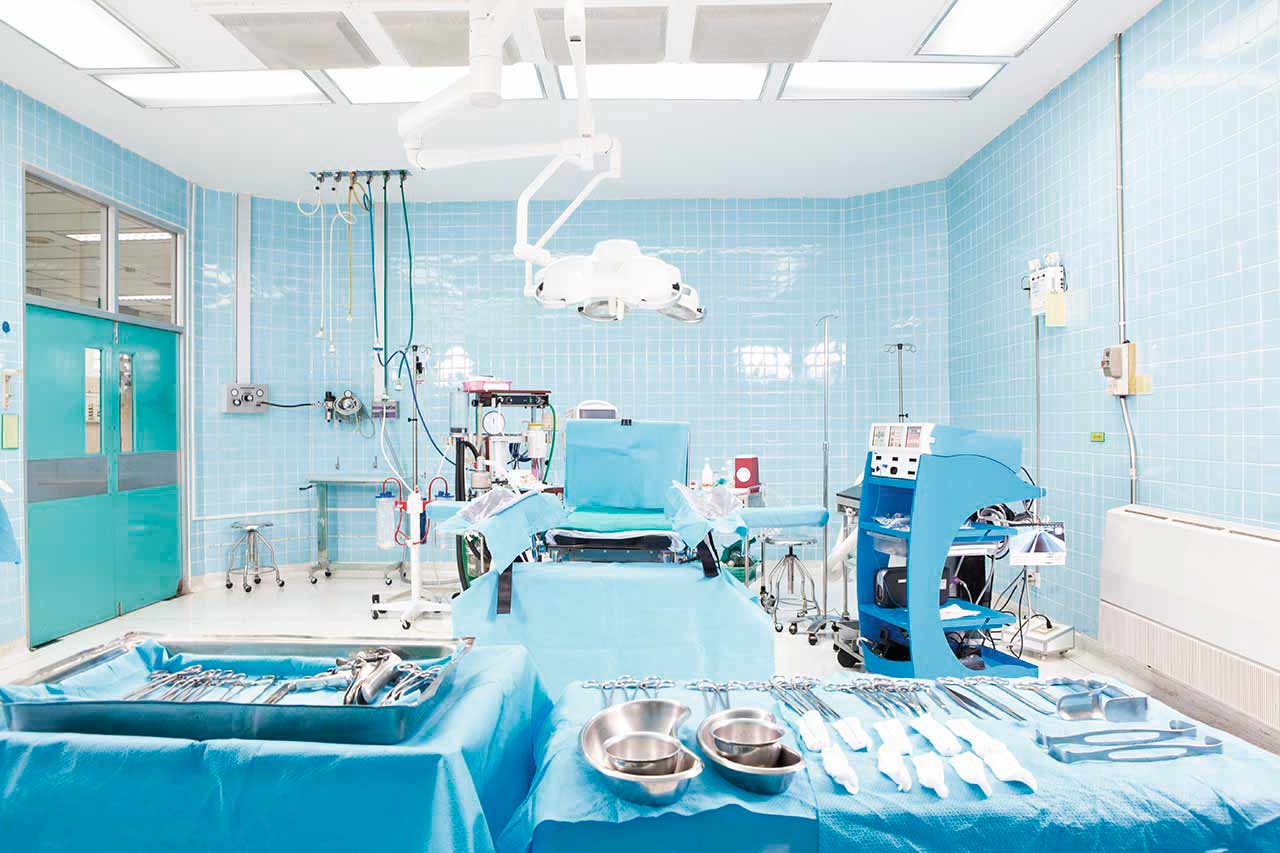
The program includes:
- Initial presentation in the clinic
- clinical history taking
- review of medical records
- physical examination
- neurological examination
- reflexes
- muscle strength
- muscle tone
- senses of touch and sight
- coordination
- balance
- laboratory tests:
- complete blood count
- biochemical blood test
- inflammation markers (CRP, ESR)
- blood coagulation analysis (aPTT, PT, INR)
- ice pack test
- electroencephalography (EEG)
- electroneuromyography (EMG)
- repetitive nerve stimulation
- cerebrovascular doppler ultrasound
- brain CT/MRI
(if indicated clinically, additional cost is 650/1200€) - symptomatic treatment
- the cost of essential medicines
- nursing services
- control examinations
- full hospital accommodation
- explanation of future recommendations
Required documents
- Medical records
- Electromyography (if available)
Service
You may also book:
 BookingHealth Price from:
BookingHealth Price from:
About the department
The Department of Pediatric Neurology at the University Hospital of Ludwig Maximilian University of Munich offers the full range of diagnostic and therapeutic services in the field of its competence. Doctors pay due attention to helping young patients with general lesions of the nervous system, motor disorders of neurological origin, inflammatory neurological diseases, neuromuscular pathologies, and chronic headaches. To ensure comprehensive medical care and achieve optimal results, all the necessary specialists are involved in the treatment process, such as pediatric neurologists, psychologists, physiotherapists, ergotherapists, and speech therapists. Depending on the complexity of the clinical case, outpatient or inpatient treatment may be provided. The department offers all advanced diagnostic and treatment methods, and special attention is paid to the moral support of young patients and their parents. The medical facility has excellent infrastructure, including play areas for children, so that they can feel as comfortable as possible. The Head Physician of the department is Prof. Dr. med. Florian Heinen.
The department's pediatric neurologists regularly treat children with movement disorders caused by pathologies of the nervous system. Cerebral palsy (CP) is one of the most common movement disorders encountered by physicians in their clinical practice. Cerebral palsy occurs as a result of a developmental disorder or brain injury that affects the child's ability to control muscle function. A child suffering from cerebral palsy has not only movement disorders but also other impairments such as mental retardation, problems with hearing, vision, and speech. The treatment tactics are determined depending on the type of cerebral palsy and its severity. The doctors working at the medical facility prefer a comprehensive approach, combining drug therapy, massage, therapeutic exercises, the author's therapeutic concepts (for example, the Bobath concept and Vojta therapy), and the use of orthopedic correction tools (orthoses, special splints, and corsets).
The department's specialists also successfully treat rarer types of movement disorders in children, such as dystonia, dyskinesia, tics, spastic paresis, spastic spinal paralysis, and spastic syndromes caused by spinal cord injuries. In the course of the treatment of the above-mentioned pathological conditions, a complex of measures is used, including the intake of drugs, therapeutic exercises, physiotherapy procedures, and deep brain stimulation. In addition, young patients undergoing their treatment in the department are offered innovative robot-assisted locomotor training (Lokomat®). Children are trained on a special robot-assisted device that is designed to train walking. Training on the simulator helps to improve the child's motor functions and endurance, as well as increase the speed of movements. The success of training on the Lokomat® robot-assisted system has been scientifically proven in clinical trials.
The department's doctors have vast experience in providing medical care to children with multiple sclerosis (an inflammatory disease of the nervous system). The pathology is considered incurable, but the department's pediatric neurologists have various therapeutic techniques in their arsenal to ensure a high quality of life for a child. The most common manifestations of multiple sclerosis in children include visual loss and eye movement disorders, loss of sensation, balance disorders, and dizziness. An MRI scan of the brain and spinal cord, as well as a lumbar puncture, are sufficient to confirm the diagnosis. The department's specialists carry out differential diagnostics with other neurological pathologies whenever required. As for treatment, doctors use modern pills, infusions, physiotherapy, and other methods.
The department's range of medical services includes:
- Diagnostics and treatment of general neurological disorders and pathologies
- Diagnostics and treatment of developmental disorders
- Developmental disorders in premature babies
- Unexplained developmental or behavioral disorders
- Developmental delay
- Impaired speech development, play behavior, and communication with other children
- Genetic syndromes (for example, Prader-Willi syndrome, Rett syndrome, Down syndrome)
- Chronic diseases affecting the development of the child (for example, congenital metabolic disorders)
- Diagnostics and treatment of movement disorders
- Cerebral palsy of any severity
- Dystonia and dyskinesia
- Choreiform disorders
- Tic disorders
- Spastic paresis
- Spastic spinal palsy
- Spastic syndromes caused by spinal cord injuries
- Idiopathic toe walking
- Diagnostics and treatment of inflammatory diseases of the nervous system
- Multiple sclerosis
- Myasthenia gravis
- Inflammatory neuropathies (for example, chronic inflammatory demyelinating polyradiculoneuropathy (CIDP), Guillain-Barre syndrome)
- Diagnostics and treatment of neuromuscular diseases
- Muscular dystrophies and congenital myopathies
- Spinal muscular atrophy
- Hereditary polyneuropathies
- Congenital myasthenic syndromes
- Mitochondrial diseases
- Traumatic injuries of the peripheral nervous system
- Brachial plexus paralysis in the case of injuries during a childbirth
- Diagnostics and treatment of chronic headaches
- Migraine
- Chronic headache of unknown origin
- Tension headache
- Facial pain
- Diagnostics and treatment of other neurological disorders in children
The department's main therapeutic options include
- Drug therapy
- Intake of pills
- Injection therapy
- Infusion therapy
- Deep brain stimulation
- Physiotherapeutic procedures, including robot-assisted locomotor training (Lokomat®)
- Therapeutic exercises
- Massage
- Author's treatment concepts (for example, the Bobath concept and Vojta therapy)
- Orthopedic correction auxiliaries (orthoses, special splints, and corsets)
- Other treatment methods
Curriculum vitae
Higher Education and Professional Career
- Since 2003 Head of the Department of Pediatric Neurology at the University Hospital of Ludwig Maximilian University of Munich.
- 1999 - 2003 Head of the Children's Hospital Duisburg.
- 1999 Professor for Pediatrics and Pediatric Neurology, University of Freiburg.
- 1987 - 1997 Postgraduate Training in Neurology, including Pediatric Neurology, and Psychiatry.
- 1969 - 1979 Human Medicine studies, University of Freiburg
Clinical and Research Interests
- Botulinum toxin therapy for children in Germany.
- Botulinum toxin injections under ultrasound guidance.
- Robotic medicine for children with cerebral palsy.
- Study of the development of motor skills using neurophysiological and systemic physiological methods and imaging methods.
- Treatment of epilepsy.
- Treatment of cerebral palsy and dystonia.
- Treatment of headaches in children.
- Treatment of fetal alcohol syndrome.
- Treatment of stroke in children.
Memberships in Professional Societies
- Former President of the German Neuropaediatric Society (GNP).
- Initiator and Кesponsible Сoordinator of the Academy of Continuing Education of the German Society for Neuropediatrics (GNP).
- Society for Clinical Neurophysiology and Functional Imaging.
- American Academy for Cerebral Palsy and Developmental Medicine (AACPDM).
- Chairman and Secretary of the Working Group on Botulinum Toxin Treatment of the German Neurological Society.
- Member of the Scientific Advisory Board of the German Dystonia Society (DDG).
- Member of the Board of the European Pediatric Neurology Society (EPNS).
Photo of the doctor: (c) LMU Klinikum
About hospital
According to the Focus magazine, the University Hospital of Ludwig Maximilian University of Munich is regularly ranked among the best medical institutions in Germany!
The hospital is the largest multidisciplinary medical facility, as well as a leading research and training center in Germany and Europe. The hospital is proud of its bicentenary history and tirelessly confirms its primacy at the national and international levels. The outstanding quality of medical care is complemented by highly productive research activities, thanks to which many effective diagnostic and therapeutic methods, saving people’s lives, have been presented in medical practice.
The medical facility includes two main buildings, Grosshadern and Innenstadt. The hospital has 29 specialized departments, 53 interdisciplinary centers, 11 institutes, and many sections. More than 500,000 patients are treated here every year, which indicates the hospital's excellent reputation. A large and highly professional medical team, consisting of 1,800 doctors and 3,300 nursing staff, works for the benefit of patients. The hospital has 2,000 beds to accommodate patients.
The hospital's infrastructure deserves special attention: advanced diagnostic equipment that allows doctors to detect the slightest pathological changes in the human body, the latest operating rooms with highly efficient monitoring systems, robot-assisted surgical systems that facilitate sparing operations, and proper postoperative care.
Excellent technical resources and highly professional medical staff are undoubtedly the hospital's pride, but the medical facility also pays attention to the patient's comfort and to a humane attitude toward their life situation. When providing the necessary medical care, doctors and nursing staff always show a friendly attitude, inform patients in detail about the upcoming diagnostic and therapeutic procedures, gladly answer all questions of interest to patients, and provide moral support during the therapeutic process.
The hospital has many prestigious quality certificates, including a DIN EN ISO 9001 certificate, an IQM certificate, an endoCert certificate, certificates from the German Cancer Society (DKG) for treating various types of cancer, the German Cardiac Society (DGK), the German Society for Orthopedics and Trauma Surgery (DGOU), etc. Thus, patients can count on the best possible treatment outcome due to the use of the most effective and, at the same time, sparing therapeutic techniques.
Photo: (с) depositphotos
Accommodation in hospital
Patients rooms
The patients of the University Hospital of Ludwig Maximilian University of Munich live in comfortable, spacious, single and double patient rooms with a modern design. Each room is equipped with an ensuite bathroom with a shower and toilet. The furnishing of a standard patient room includes a comfortable bed, the position of which can be adjusted using the remote control, a locker for storing personal belongings, a TV, and a telephone. Also, if desired, you can connect to the Internet. In addition, patients can opt for enhanced-comfort rooms, with a safe, a fridge, and upholstered furniture.
The hospital has an excellent infrastructure. The medical facility’s area houses a bank, ATMs, a hairdresser, shops with a wide range of food, drinks, newspapers, magazines, and personal hygiene items, play areas for children, and a beautiful garden for walking, etc.
Meals and Menus
The patient and his accompanying person are offered a daily choice of three menus, including a vegetarian one. If you are on a specific diet for any reason, you will be offered an individual menu. Please inform the medical staff about your dietary preferences prior to the treatment.
Further details
Standard rooms include:
Religion
Religious services are available upon request.
Accompanying person
Your accompanying person may stay with you in your room or at a hotel of your choice during the fixed program.
Hotel
You may stay at a hotel of your choice during an outpatient program. Our managers will help you to choose the best option.
The hospital offers a full range of laboratory tests (general, hormonal, tests for infections, antibodies, tumor markers, etc.), genetic tests, various modifications of ultrasound scans, CT scans, MRI and PET/CT, angiography, myelography, biopsies, and other examinations. Treatment with medications, endoscopic and robotic operations, and stereotaxic interventions are carried out here, modern types of radiation therapy are also used. The hospital offers patients all the necessary therapeutic techniques.
- Allogeneic bone marrow transplantation
- Microsurgical transplantation of head and neck tissues
- Microsurgical resection of brain tumors with intraoperative fluorescence
- Minimally invasive treatment of spine pathologies
- Joint replacement with postoperative rehabilitation (fast track program)
Patients with benign and malignant neoplasms of various localizations, pathologies of arteries and veins, herniated discs, osteoporosis, congenital and acquired pathologies of the musculoskeletal system, benign and malignant pathologies of the mammary gland, and other pathologies.
Which specialties of the University Hospital of Ludwig Maximilian University of Munich are the best?
- Interventional and diagnostic neuroradiology
- Vascular surgery
- Cardiac surgery
- Mammalogy
- Gastroenterology and hepatology
Over 1,700 highly qualified doctors work at the hospital.





